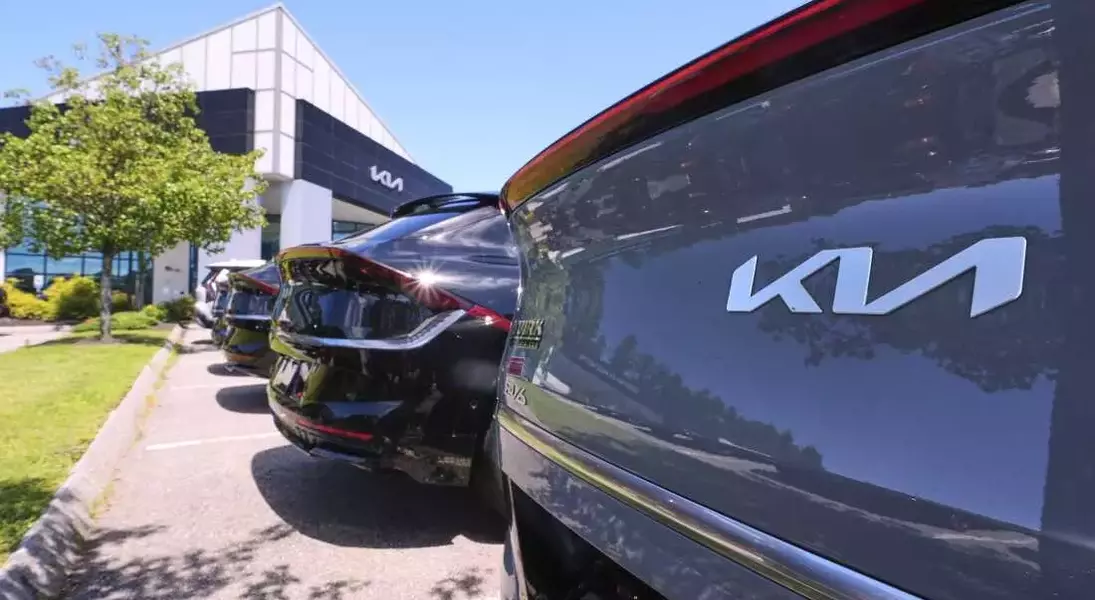
The federal tax incentive for electric vehicle purchases, which can provide up to $7,500, is slated to conclude on September 30th. Nevertheless, the Internal Revenue Service has recently issued a significant clarification, offering a degree of flexibility for consumers. This updated guidance stipulates that as long as a legally binding agreement for an electric vehicle is established before the September 30th deadline, the purchase remains eligible for the tax benefit, even if the actual delivery of the vehicle occurs at a later date. This adjustment is poised to alleviate concerns for prospective buyers facing potential delivery delays and is expected to drive a surge in EV transactions in the immediate future.
The federal government's incentive program for electric vehicle acquisitions, commonly known as the EV tax credit, is approaching its termination date on September 30th. This credit, offering up to $7,500, was initially established to encourage the adoption of cleaner transportation options. However, under the provisions of the One Big Beautiful Bill Act, this incentive is being phased out.
In a recent announcement, the IRS has provided a crucial update that offers a significant reprieve for consumers. Previously, eligibility for the tax credit was strictly tied to the vehicle's delivery date. This meant that if a car qualified for the credit in one year but not the next, and was delivered just after the new year, the buyer would miss out. This new interpretation, however, aligns with past instances where the agency has based eligibility on the contract signing date, such as during the changes introduced by the Inflation Reduction Act. This decision echoes the legislative intent expressed by lawmakers during debates surrounding the tax and spending package, who advocated for binding contracts to be recognized as qualifying purchases.
Experts like Andy Phillips from H&R Block's Tax Institute highlight the practical benefits of this newfound flexibility. It will particularly assist individuals ordering vehicles that require shipping from other states or those customizing and awaiting the manufacturing of a new car. These scenarios often involve delivery timelines that extend beyond a strict deadline. While precise figures on how many consumers will benefit from this updated guidance are not yet available, it is anticipated to make a substantial difference for those who have already identified their desired electric vehicle.
The landscape of federal tax credits for electric vehicles has been characterized by complexity and frequent modifications. For new vehicles, the credit amount can reach $7,500, contingent on factors such as a specific price ceiling, North American manufacturing origin, and a minimum percentage of battery components and minerals sourced from the U.S. or allied nations. Additionally, income thresholds apply to buyers, with adjusted gross income limits set at $150,000 for individuals and $300,000 for married couples. A wide array of models from manufacturers like Tesla, Chevrolet, Hyundai, Kia, Ford, and Chrysler are eligible, though buyers should always confirm specific vehicle eligibility with their dealerships. Beyond new vehicles, a credit of up to $4,000 is available for used electric vehicles that are at least two years old and priced under $25,000. Interestingly, leasing an EV offers another avenue for the $7,500 credit, with fewer restrictions on price, manufacturing location, or buyer income, a provision favored by many automakers despite criticism.
The electric vehicle market in the U.S. has experienced significant growth in recent years, particularly between 2020 and 2023. However, unlike the sustained expansion seen in international markets, U.S. EV sales have recently stabilized, holding steady at approximately 10% of the overall market. This plateau has been a source of disappointment for both automotive manufacturers and environmental advocates. With the impending cessation of these tax credits, coupled with the current administration's actions to roll back policies promoting EVs, the industry faces new challenges. Analysts predict a short-term increase in EV sales as buyers and dealerships rush to capitalize on the expiring incentive, followed by a potential downturn. Data from Cox Automotive indicates a nearly 20% year-over-year increase in new EV sales and a 40% rise in used EV sales in July, with expectations for continued strong sales through September. Despite these short-term fluctuations, the long-term outlook for electric vehicles remains positive, albeit with a projected slower adoption rate than initially anticipated. Automakers continue to invest in developing more affordable EV models to sustain market growth.
The discontinuation of the EV tax credit represents a considerable challenge for automakers, who are simultaneously navigating shifting tariff policies and high interest rates. While there has been a noticeable increase in electric vehicle sales recently, searches for EVs on platforms like Edmunds.com have not surged as dramatically as anticipated. This suggests that many consumers may not be fully aware of the impending deadline for the tax credit. Such a lack of consumer awareness could lead to disappointment for potential buyers in the coming months, underscoring the importance of clear communication regarding these significant policy changes in the automotive sector.
